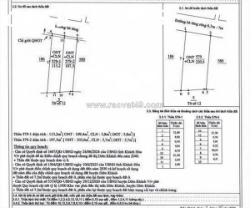Customer data platforms (cdps) in modern retail strategies
Ngày đăng: 7/27/2025 10:30:08 PM - Dịch vụ - Toàn Quốc - 28Chi tiết [Mã tin: 6141435] - Cập nhật: 45 phút trước
In the rapidly evolving retail landscape, understanding and engaging customers on a highly personalized level is critical for competitive success. Customer Data Platforms (CDPs) have emerged as powerful tools to unify fragmented customer information and enable retailers to deliver tailored experiences that resonate deeply with their audiences. By integrating data from diverse sources into a single, accessible platform, CDPs transform raw information into actionable insights that drive smarter marketing, improved customer loyalty, and increased revenue.
What is a Customer Data Platform and Why Retail Needs It
A Customer Data Platform is software that collects, consolidates, and organizes first-party customer information from various touchpoints such as websites, mobile apps, CRM systems, and point-of-sale tools, creating unified, persistent customer profiles. Unlike traditional data management, CDPs break down silos by making comprehensive customer data accessible across marketing, sales, and service teams in real time.
For retailers, this centralized data hub addresses significant challenges — from managing vast heterogeneous datasets to personalization demands and regulatory compliance. CDPs serve as the foundation for a hyper-personalized customer experience, essential in a retail environment where 71% of customers expect brands to know them and tailor interactions accordingly, and 76% feel frustrated if they don’t receive it.
Enhancing Personalization and Customer Engagement
Retailers leveraging CDPs gain a granular understanding of customer behavior, preferences, and purchase histories, enabling dynamic personalization throughout the customer journey. Real-time updates of customer profiles allow brands to recommend relevant products, deliver timely offers, and craft targeted marketing campaigns that reduce churn and boost engagement.
Moreover, CDPs empower omnichannel experiences where customers receive consistent messaging whether shopping online, in-store, or through mobile channels. This unified approach aligns with consumer expectations of seamless interaction across platforms and supports loyalty by building trust and relevance.
Breaking Down Data Silos and Improving Operational Efficiency
One of the most transformative benefits of CDPs in retail is the elimination of data silos. Different departments often store customer information in separate systems, obstructing holistic insights and coordinated campaigns. A CDP integrates these disparate datasets, making a single source of truth accessible across the organization. This enhances collaboration and accelerates decision-making while streamlining marketing operations to optimize budget allocation.
In addition, CDPs typically feature intuitive interfaces that allow marketing teams to manipulate and analyze data without deep technical expertise, reducing dependence on IT resources and expediting campaign deployment. Automation capabilities within CDPs further improve operational efficiency by automating segmentation, targeting, and personalization processes.
Regulatory Compliance and Data Privacy Management
With increasing consumer awareness and stringent laws like GDPR and CCPA, proper management of customer data privacy is paramount. CDPs help retailers maintain compliance by securely managing consent and data usage preferences, acting as a control center to ensure data flows only to authorized marketing and analytical tools. This level of governance builds customer trust and reduces the risk of costly compliance violations.
Driving Revenue Growth and Customer Lifetime Value
Beyond improving marketing precision and cost efficiency, CDPs have a direct impact on business outcomes. Personalized experiences enabled by CDPs drive repeat purchases and foster brand loyalty, increasing customer lifetime value. Retailers also benefit from enhanced analytics capabilities to track key performance indicators such as email click-through rates, conversion rates, and return on ad spend, allowing continuous campaign refinement and maximization of ROI.
Choosing the Right CDP for Retail Success
Not every CDP fits every retail need. When selecting a platform, retailers should look for features that include robust data integration, real-time processing, advanced segmentation, and seamless integration with existing systems like CRM and marketing automation tools. Scalability and security are also critical, ensuring the platform can handle growing data volumes while protecting sensitive information.
For retailers seeking tailored solutions that address these challenges, https://www.avenga.com/retail/ highlights how Avenga - Custom Software Development crafts customized CDP implementations that reconcile unique business requirements with modern technology frameworks.
By harnessing the full potential of Customer Data Platforms, retailers can unlock unprecedented levels of customer insight, enabling personalized, compliant, and efficient engagement strategies that sustain growth in a competitive marketplace.
Tin liên quan cùng chuyên mục Dịch vụ
- 2
Bán đất thổ cư mặt tiền gần giga mall phạm văn đồng hbc 142m2_7.5x19m chỉ 12.xx tỷ giá đầu tư
Cập nhật: vài giây trước - 2
Bán nhà hẻm xe hơi _82m2_gần lê văn việt_tăng nhơn phú b_chỉ 7.2 tỷ
Cập nhật: vài giây trước - 2
Bán lô đất mt hòa phú 9 (gò nảy 6 cũ), p. hòa minh, q. liên chiểu, đà nẵng
Cập nhật: vài giây trước - 2
🔴💥bán đất hòa phú 9 (gò nảy 6), hòa minh, liên chiểu, đà nẵng
Cập nhật: vài giây trước  1
1Đại từ nhà xây mới full nội thất 35m 5 tàng 4 phòng giá nhỉnh 6 tỷ
Cập nhật: vài giây trước- 0
Chính chủ cần bán nhà phố ngọc trục đại mỗ quận nam từ liêm 35 m2 x 5 t nhỉnh
Cập nhật: vài giây trước - 2
Bán nhà mặt tiền xe ô tô gần lê văn việt_tăng nhơn phú b_giá chỉ 6.5 tỷ.
Cập nhật: vài giây trước - 0
Chính chủ cần bán nhà phố lê quang đạo quận nam từ liêm 50 x 7 t nhỉnh 9 tỷ mt
Cập nhật: vài giây trước - 2
Bán gấp nhà lã xuân oai, tăng nhơn phú a, quận 9, thủ đức, 50m2 chỉ 4.x tỷ, hẻm xe tải, hạ chào
Cập nhật: vài giây trước - 2
🔴💥bán đất mặt tiền trần cao vân - giá chỉ 4 tỷ 450tr thôi
Cập nhật: vài giây trước - 2
🔴💥nhà đẹp 2 tầng kiệt thái thị bôi -full nội thất
Cập nhật: vài giây trước - 2
Bán nhà cây keo, tam phú, thủ đức 60m2, hẻm xe tải chỉ 3.xx tỷ sát mặt tiền, hiếm có
Cập nhật: 1 phút trước  1
1Bán nhà lĩnh nam, hoàng mai, 22m 3 tầng 2 ngủ 1.9 tỷ
Cập nhật: 1 phút trước- 2
Bán nhà gần quốc lộ 1k, linh xuân, thủ đức 75m2_4.3x19m, 2t, 3pn, hxh chỉ nhỉnh 3 tỷ vào ở ngay
Cập nhật: 1 phút trước - 2
Nhà 2 mặt tiền 2 tầng đường tôn đức thắng - vị trí siêu đỉnh kinh doanh
Cập nhật: 1 phút trước  1
1Bán nhà mặt phố nhà thờ, 80m2, 72.5 tỷ, kinh doanh siêu đỉnh, phù hợp xây khách
Cập nhật: 1 phút trước 2
2Bán tòa vp mặt phố hoàng văn thái, 5m2, 7 tầng thang máy, mặt tiền 5m, 59.6
Cập nhật: 1 phút trước- 0
Chính chủ cần bán nhà phố trần quốc hoàn quận cầu giấy45m2 x4 t 8,5 tỷ ô tô kd
Cập nhật: 1 phút trước - 0
Cần bán nhà chính chủ quận thanh xuân bán nhà phố phùng khoang 36 m3 x4 t 4.5
Cập nhật: 1 phút trước - 2
Ngộp bán gấp nhà gần đặng văn bi trường thọ, thủ đức 89m2_6.5x14m, chỉ 3.45 tỷ tặng nhà 2 tầng vào
Cập nhật: 1 phút trước  2
2Bán nhà nguyễn đình chiểu, 58m2, 7 tầng thang máy, mặt tiền 4.5m, 26.6 tỷ, dòng
Cập nhật: 1 phút trước- 2
Bán nhà dương đình hội hxh_84m2_phước long b_thủ đức_giá nhỉnh 5 tỷ
Cập nhật: 1 phút trước - 2
Mặt tiền kinh doanh_80m2_đường số 6 _tăng nhơn phú b_giá chỉ 6,5 tỷ
Cập nhật: 1 phút trước - 2
Bán nhà 1 trệt 1 lầu_40m2_quốc lộ 13_hiệp bình phước_thủ đức_giá 2.65 tỷ
Cập nhật: 1 phút trước  2
2Bất động sản khánh hoà năm 2025 sẽ tăng giá
Cập nhật: 1 phút trước 1
1Bán nhà đông thiên lĩnh nam 25m 2 tầng giá 2.07tỷ nhà chưa sổ
Cập nhật: 1 phút trước 1
1Chỉ 5.490.000₫ mua ngay galaxy a17 5g màn đẹp pin trâu
Cập nhật: 1 phút trước- 2
Bán nhà hẻm xe hơi_quốc lộ 13_hiệp bình phước_thủ đức_giá 7,5 tỷ
Cập nhật: 2 phút trước - 2
Bán đất lô góc 2 mặt tiền đường nguyễn tất thành
Cập nhật: 2 phút trước  1
1Chào bán nhà kiệt ô tô tổ 50 hoàng minh thảo thông ra nguyễn đình tứ
Cập nhật: 2 phút trước- 2
Bán nhà gần tô ngọc vân, tam bình, thủ đức 40m2, hẻm xe hơi, 2t, n 4m, shr chỉ 2 tỷ nhỉnh, giảm
Cập nhật: 2 phút trước - 0
Cần bán nhàchính chủ quận nam từ liêm phố mỹ đình 52 m2 x 5 t 6.8 tỷ ô tô kd
Cập nhật: 2 phút trước - 0
Chính chủ cần bán mảnh đất phố cầu cốc phường tây mỗ quận nam từ liêm 41m2 mt
Cập nhật: 2 phút trước - 2
Bán nhà sổ hồng riêng 41m2_4x11m gần phạm văn đồng_hiệp bình chánh_thủ đức_giá 3.5 tỷ
Cập nhật: 2 phút trước  1
1Bán nhà lĩnh nam 32m 4 tầng ngõ nông giá nhỉnh 3 tỷ sổ chung
Cập nhật: 2 phút trước- 2
Mặt tiền kinh doanh đỉnh gần chương dương,linh chiểu, thủ đức 70m2, 2t chỉ nhỉnh 5 tỷ giảm sốc 1 tỷ
Cập nhật: 2 phút trước - 0
Chính chủ cần bán nhà phố ngọc trục đại mỗ quận nam từ liêm 35 m2 x 5 t nhỉnh 3
Cập nhật: 2 phút trước  1
1Bán nhà minh khai 22m 4 tầng full nội thất ngõ nông gần phố giá nhỉnh 4 tỷ
Cập nhật: 2 phút trước- 2
Bán nhà gần vincom, linh chiểu, thủ đức 40m2, hẻm xe hơi, 2t đúc, chỉ 3 tỷ nhỉnh, cần bán gấp
Cập nhật: 2 phút trước - 2
Cực hiếm chỉ nhỉnh 5 tỷ, bán gấp nhà quốc lộ 1k, linh xuân thủ đức, 0m2, ngang 9.2m, hẻm xe hơi,
Cập nhật: 2 phút trước - 2
Bán nhà gần đh ngân hàng, linh chiểu, thủ đức, 95m2, chỉ nhỉnh 3 tỷ rẻ mà ngon
Cập nhật: 2 phút trước - 0
Chính chủ cần bán nhà nguyễn đổng chi quận nam từ liêm 32m2 x 5 t 5,6 tỷ ô tô kd
Cập nhật: 2 phút trước - 2
Đất gần xa lộ hà nội_100m2_5x20m_hiệp phú_thủ đức_giá chỉ 3,75 tỷ
Cập nhật: 3 phút trước  1
1Bán nhà 4 tầng, 44m², 5 phòng, nguyễn khoái, 5.35 tỷ, sổ đỏ
Cập nhật: 3 phút trước 2
2Đẳng cấp! bán tòa văn phòng khu vực phạm đình hổ, 230m2, 8 tầng 1 hầm, mặt tiền
Cập nhật: 3 phút trước- 2
Bán nhà gần kha vạn cân trường thọ thủ đức 26m2 shr chỉ nhỉnh 2 tỷ rẻ quá rẻ
Cập nhật: 3 phút trước  1
1Bán nhà 26m², 3 tầng, 2 phòng ngủ, vĩnh hưngi, 2.54 tỷ
Cập nhật: 3 phút trước- 2
Bán nhà gần chợ tam bình, tam phú, thủ đức 60m2, hẻm xe tải chỉ 3.xx tỷ rẻ kịch sàn
Cập nhật: 3 phút trước  1
1Chính chủ cần bán nhà phố mỹ đình quận nam từ liêm 30 x 5 t nhỉnh 3 tỷ ô tô kd
Cập nhật: 3 phút trước- 2
Bán gấp nhà linh xuân thủ đức 125m2, hẻm xe tải chỉ 5 tỷ nhỉnh giá siêu mềm
Cập nhật: 3 phút trước















